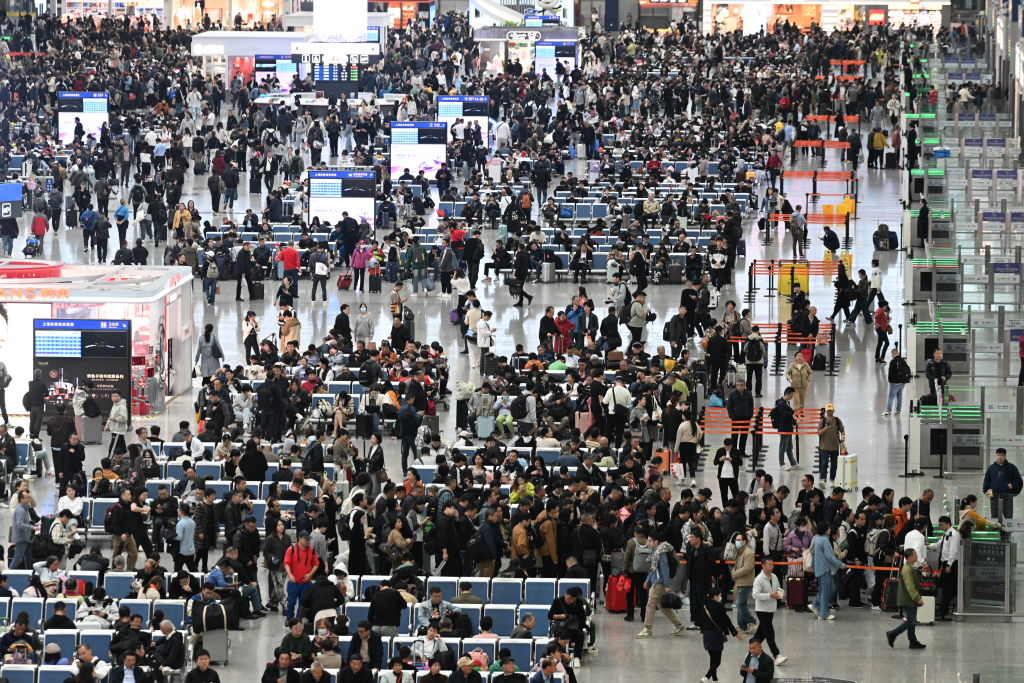Shanghai relocated more than 280,000 people, halted hundreds of flights and ferry services and imposed speed limits on roads and railways on Wednesday as a tropical storm whipped eastern China with gales and heavy rain.
Landfall by Co-May in the port city of Zhoushan in Zhejiang province early on Wednesday was soon followed by warnings of a tsunami set off by a powerful earthquake off Russia’s far east, raising concerns of larger-than-expected storm surges along the Chinese coast.
Authorities lifted the tsunami warnings for Shanghai and Zhoushan later in the day.
While the winds from Co-May were weaker than those generated by typhoons, the Chinese financial hub and other cities in the Yangtze River delta have taken no chances.
At least 640 flights could be cancelled at Shanghai’s two main airports on Wednesday, including 410 at Pudong and 230 at Hongqiao, authorities said.
All ferry services in Shanghai had been cancelled since Wednesday morning, and drivers were told to drive under 60 kph (37 mph) on highways, local media reported.
Co-May made landfall in Shanghai at 4:40 p.m. (0840 GMT), with wind speeds similar to when the storm landed in Zhoushan earlier, at 23 metres per second (83 kph).
Rainfall of up to 100 mm – about a month’s worth – is expected within a six-hour period in the city, said municipal authorities, warning about potential waterlogging around the city centre.
While some parks and the zoo have closed, Shanghai’s Disneyland and Legoland remained open, with some rides suspended at Legoland due to weather conditions, the park said.
Airports at nearby cities Ningbo, Wenzhou and Hangzhou saw flight cancellations and diversions. As of Wednesday morning, more than 75% of the day’s flights at Zhoushan were cancelled.
Some train services in the region were temporarily suspended with others operated under restricted speeds, state media said.
Shanghai is rarely subject to direct hits from strong typhoons that generally make landfall further south in China. The most significant typhoon in recent years that landed directly in Shanghai was Bebinca last year, the most powerful tropical cyclone to hit China’s financial capital since 1949.
The arrival of Co-May coincided with a tsunami triggered by a magnitude 8.8 earthquake off Russia’s Kamchatka Peninsula on Wednesday, about 4,000 km (2,500 miles) from Shanghai.
While China’s National Marine Environmental Forecasting Center said the tsunami was expected to have “disastrous impacts” on some parts of China’s coast, Shanghai’s municipal earthquake agency later discounted potentially “disastrous impacts.”
Although nearby coastal regions could see water levels rise by up to 180 cm in the evening, tidal waves around the city will not exceed warning levels, Shanghai’s marine forecasting centre said, according to state media reports.
(Reuters)














